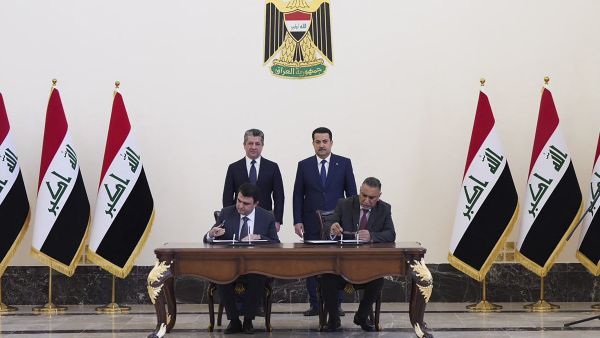ALBAWABA- Iraqi Prime Minister Mohammed Shia al-Sudani announced on Thursday a historic agreement to restart crude oil exports from the Kurdistan Region through the Iraq-Turkey pipeline after an 18-month suspension that drained revenues from both Baghdad and Erbil.
The interim deal, struck between the federal government, the Kurdistan Regional Government (KRG), and major international oil companies under the Association of the Petroleum Industry of Kurdistan (APIKUR), sets a 48-hour timeline for the resumption of flows.
Around 230,000 barrels per day are expected to reach Turkey’s Mediterranean port of Ceyhan, pending final approvals.
Under the terms, the KRG will deliver crude to Iraq’s State Oil Marketing Organization (SOMO) for centralized sales.
At the same time, international oil companies will receive $16 per barrel to cover production and transport costs, in line with a February 2025 budget amendment.
The agreement also guarantees payments, protects existing IOC contracts, and pledges to clear roughly $1 billion in arrears within 30 days, providing relief for Kurdistan’s struggling economy while lifting Iraq’s total exports toward 4.5 million barrels per day.
The halt, triggered in March 2023 by an arbitration ruling against Turkey for unauthorized KRG exports, had cost Iraq an estimated $26 billion and deepened disputes over resource control.
Turkey’s compliance and interest in diversifying its energy supplies added further pressure for resolution. While hailed by APIKUR as a “milestone” restoring investor confidence, the agreement is only a stopgap. Without a permanent federal oil law, long-standing tensions over revenue sharing and autonomy could resurface, making this breakthrough both a relief and a reminder of unfinished business.










